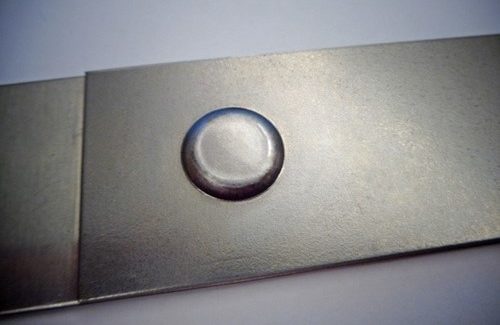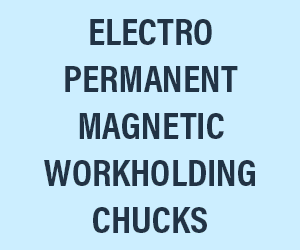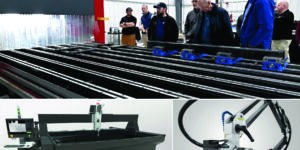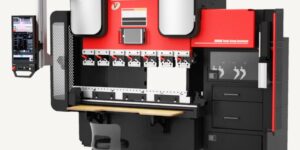Coldwater Machine Selected as Partner in New Welding Process
They are working on Vaporizing Foil Actuator Welding technology with Ohio State University.
Posted: September 8, 2016
Coldwater Machine Company (Coldwater, OH), a leading engineering solutions company that manufactures and integrates assembly automation and special machinery for the automotive, appliance, energy and aerospace industries, announced that they have been selected as a manufacturing and collaboration partner to help commercialize Vaporizing Foil Actuator Welding (VFAW) technology with Ohio State University (OSU; Columbus, OH). This joining process, which can weld dissimilar metals, will complement their other solid state joining capabilities, including friction stir welding (FSW), refill friction stir spot welding (RFSSW) and laser welding solutions.
With the VFAW process, an aluminum foil actuator is electrically vaporized by means of a capacitor bank. This rapid vaporization generates a high pressure pulse that drives one metallic workpiece toward the other at extremely high speeds with the resulting impact causing the metals to weld together, forming an atomic bond upon contact. The technique uses less energy than resistance welding, yet creates stronger bonds. The process was invented and patented by OSU in 2012. To date, their engineers have successfully bonded different combinations of copper, aluminum, magnesium, iron, nickel and titanium.
“As with our SpinMeld™ (FSW) and SpotMeld™ (RFSSW) solutions, VFAW is aimed at helping to join advanced and dissimilar materials that are increasing in the marketplace as automakers strive to lightweight vehicles,” explained Tim McCaughey, the president of Coldwater Machine. “We are excited to partner with OSU.” Coldwater Machine will work with OSU to create a manufacture-ready system for VFAW, including development of two units in the fall of 2017. Other collaborators include Honda and its supplier Jefferson Industries, which are working to bring the technology into production as a head unit for robotic implementation, while Ashland will validate corrosion control methodologies.
The commercialization project is being funded by a grant from the Edison Advanced Manufacturing Program, through OSU’s Center for Design and Manufacturing Excellence. Additionally, The Department of Energy (DOE) is investing in the project to further develop it as a viable technology for creating multi-material, lightweight vehicles.
To see a video overview, please click here.















